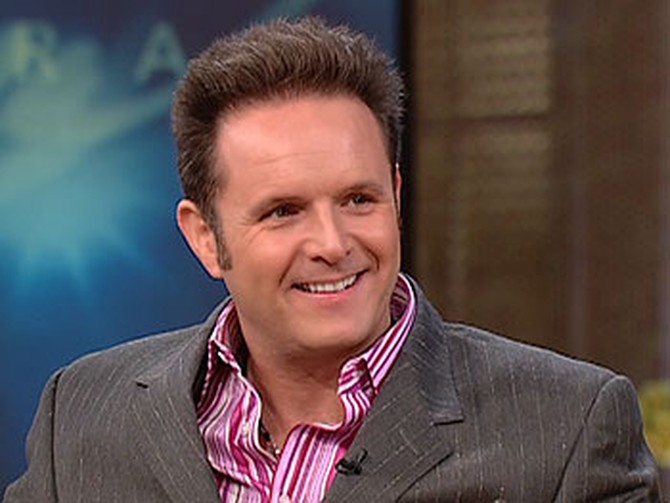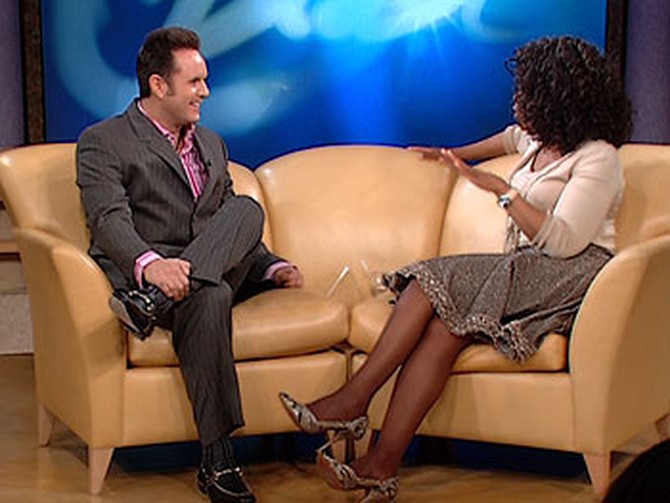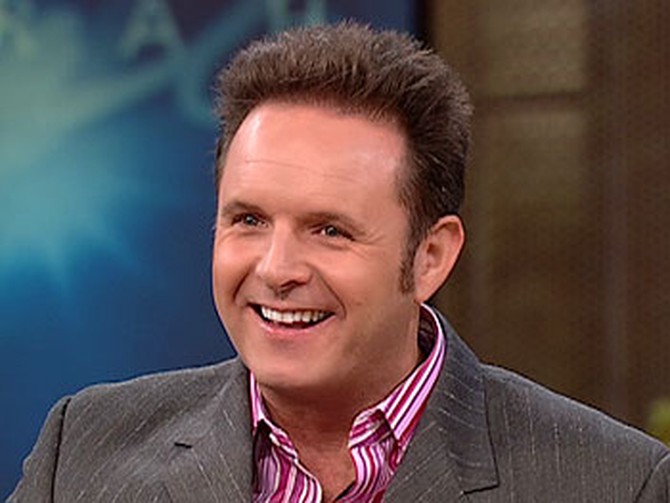Real American Dreams

The genius behind the wildly popular Survivor and The Apprentice, Mark Burnett invented reality TV as we know it. But his trek to Tinseltown was quite an adventure.
"My upbringing was in a very, very blue-collar family," Mark says. "Both parents were factory workers. My dad worked the night shift for 30 years. My mother went to work pouring acid into car batteries for 25 years."
At 17, he enlisted in the British Army and served as an elite paratrooper. Five years later, he left Britain with just $600 in his pocket to pursue the American dream. He found a job as a nanny in Los Angeles, but soon opened up a small T-shirt business on Venice Beach.
Through hard work, Mark achieved financial success but he still felt that he could dream a bigger dream. His passions were adventure and TV. He combined the two, mortgaged his house, and bought the American rights to the European show Survivor. And as they say, the rest is history.
"My upbringing was in a very, very blue-collar family," Mark says. "Both parents were factory workers. My dad worked the night shift for 30 years. My mother went to work pouring acid into car batteries for 25 years."
At 17, he enlisted in the British Army and served as an elite paratrooper. Five years later, he left Britain with just $600 in his pocket to pursue the American dream. He found a job as a nanny in Los Angeles, but soon opened up a small T-shirt business on Venice Beach.
Through hard work, Mark achieved financial success but he still felt that he could dream a bigger dream. His passions were adventure and TV. He combined the two, mortgaged his house, and bought the American rights to the European show Survivor. And as they say, the rest is history.

Both Survivor and The Apprentice blew the lid off of primetime TV, captivating millions.
Oprah: So did you know that [Survivor] was going to become the hit that it became? Did you have an inkling?
Mark: You know, I was very certain it would be great water cooler talk. It's really...great. It's Robinson Crusoe. Lord of the Flies. It's all of the adventure, escapism, but I didn't realize the viewers would be so large. I thought it would be a cult hit.
Mark Burnett is also currently working on a new project with home decorating guru Martha Stewart: "I'm doing a...morning syndicated daily show starting in September and also a not-yet announced prime time reality show with [her]," he says.
Oprah: So did you know that [Survivor] was going to become the hit that it became? Did you have an inkling?
Mark: You know, I was very certain it would be great water cooler talk. It's really...great. It's Robinson Crusoe. Lord of the Flies. It's all of the adventure, escapism, but I didn't realize the viewers would be so large. I thought it would be a cult hit.
Mark Burnett is also currently working on a new project with home decorating guru Martha Stewart: "I'm doing a...morning syndicated daily show starting in September and also a not-yet announced prime time reality show with [her]," he says.

Mark says he is the most fortunate person. Coming to America and working as a nanny in wealthy Beverly Hills households "motivated me to see what I [could] get in this country," Mark says. "[I] started to build my American dream. Here I am today. I mean, it's the greatest country in the world."
Mark's gives his advice for people to dream big in his newest book, Jump In! Even If You Don't Know How to Swim.
"Most people don't do things from fear, and they want to have a hundred percent of things figured out before they get married, change boyfriends, change jobs," he says. "But you know what? Nothing's perfect. You can't be a hundred percent certain. You must be willing to jump in with half the facts even if you can't swim. You'll figure it out. And that's how you make it."
Mark's gives his advice for people to dream big in his newest book, Jump In! Even If You Don't Know How to Swim.
"Most people don't do things from fear, and they want to have a hundred percent of things figured out before they get married, change boyfriends, change jobs," he says. "But you know what? Nothing's perfect. You can't be a hundred percent certain. You must be willing to jump in with half the facts even if you can't swim. You'll figure it out. And that's how you make it."

Twenty years ago, Michele Hoskins, a divorced mother of three, was struggling to make ends meet. Her ticket to the American dream turned out to be her great great grandmother's recipe for a delicious syrup. Michele sold her home, her car and jewelry, banking her future on the belief that people would love and buy her grandmother's syrup.
"When I first started, I would make syrup in the basement and I would take it around to retail stores and I would tell the merchant, 'If you sold it, I will come back and invoice you,'" Michele says. "Well, I would go back and buy it myself."
Persistence was a major ingredient to Michele's success—after nine years in business she scored a $3 million contract with Denny's after calling them every single week for two years straight. Michele's Honey Creme Syrup is now sold in 10,000 grocery stores bringing in over $8 million a year!
"When I first started, I would make syrup in the basement and I would take it around to retail stores and I would tell the merchant, 'If you sold it, I will come back and invoice you,'" Michele says. "Well, I would go back and buy it myself."
Persistence was a major ingredient to Michele's success—after nine years in business she scored a $3 million contract with Denny's after calling them every single week for two years straight. Michele's Honey Creme Syrup is now sold in 10,000 grocery stores bringing in over $8 million a year!

Chances are, you have been to a Kinko's copy store. Did you ever wonder where that funny name came from? Kinko was the nickname of curly haired college student Paul Orfalea who started his very first school-supply store out of an old hamburger stand.
Life hadn't always been good to Paul. He barely made it through elementary school, failing second grade twice. He was even thought to be mentally handicapped, and called a "problem child." Paul didn't know until he was 25 years old that he was dyslexic.
But despite these setbacks, Paul saw an opportunity that would change his life—and the way America did business. One day in college, he saw how busy the copying center was. "I figured, well, if they're busy there, why wouldn't they be busy at another college campus?" So Paul opened a store at the University of California at Santa Barbara.
Within nine years Kinko's was in all 50 states and at most college campuses. Now this copycat is a multi-millionaire. Kinko's has gone global with over 1,000 stores worldwide, making 16 billion copies a year.
Life hadn't always been good to Paul. He barely made it through elementary school, failing second grade twice. He was even thought to be mentally handicapped, and called a "problem child." Paul didn't know until he was 25 years old that he was dyslexic.
But despite these setbacks, Paul saw an opportunity that would change his life—and the way America did business. One day in college, he saw how busy the copying center was. "I figured, well, if they're busy there, why wouldn't they be busy at another college campus?" So Paul opened a store at the University of California at Santa Barbara.
Within nine years Kinko's was in all 50 states and at most college campuses. Now this copycat is a multi-millionaire. Kinko's has gone global with over 1,000 stores worldwide, making 16 billion copies a year.
Published 01/19/2005

